
Stress is an inevitable part of life, and our bodies have a remarkable ability to adapt and cope with challenging situations. One key player in this process is the adrenal hormone cortisol. Cortisol plays a crucial role in the regulation of the body’s stress response, helping us navigate through difficult emotions and situations.
Resilience, the ability to bounce back from adversity, is closely linked to cortisol. When we encounter a stressful event, our bodies release cortisol to help us respond appropriately. This hormone acts as a signal to the brain, triggering a cascade of physiological and psychological changes that enable us to adapt and cope with the stressor.
However, chronic stress can disrupt the delicate balance of cortisol regulation, leading to a range of mental health issues. High levels of cortisol over an extended period can impair cognitive function, weaken the immune system, and contribute to the development of anxiety and depression. On the other hand, low levels of cortisol have been associated with a reduced ability to manage stress and a higher risk of developing post-traumatic stress disorder (PTSD).
Understanding the role of cortisol in stress resilience is essential for mental health professionals and researchers. By gaining insights into how cortisol impacts our emotional and cognitive processes, we can develop targeted interventions to support individuals in building resilience and managing stress effectively. Through a comprehensive understanding of the intricate relationship between cortisol, stress, and mental health, we can pave the way for a healthier and more resilient society.
The Importance of Cortisol in Stress Resilience
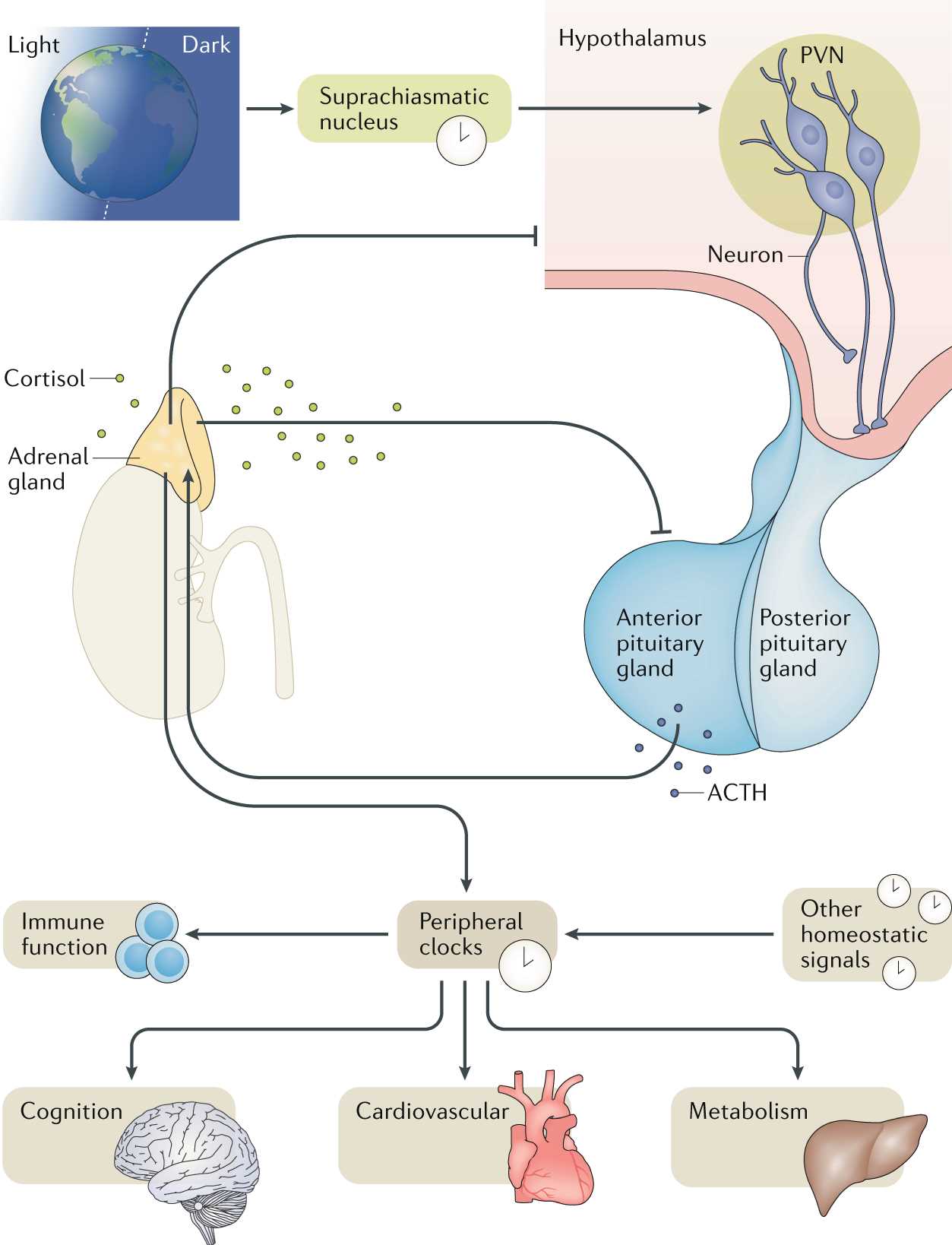
Stress is a common experience that can have a significant impact on mental health and well-being. When faced with a stressful situation, the body’s response is to release hormones, such as cortisol, from the adrenal glands. Cortisol plays a crucial role in the body’s stress response, helping to regulate emotions and anxiety levels.
Cortisol is often referred to as the “stress hormone” because it is released in higher amounts during times of stress. It helps the body to mobilize energy and resources to deal with the perceived threat. However, prolonged or chronic stress can lead to dysregulation of cortisol levels, which can have negative effects on mental health.
One of the key functions of cortisol in stress resilience is its role in regulating emotions. Cortisol interacts with certain brain regions involved in emotion processing, such as the amygdala and prefrontal cortex. It helps to modulate the emotional response to stress, preventing excessive anxiety and promoting a more balanced emotional state.
In addition to its role in emotion regulation, cortisol also plays a crucial role in the body’s physiological response to stress. It helps to regulate blood pressure, blood sugar levels, and immune system function. These physiological processes are important for maintaining overall health and well-being.
Stress resilience refers to an individual’s ability to adapt and cope with stress. Cortisol is a key player in stress resilience, as it helps to regulate the body’s response to stress and promote recovery. Individuals with higher levels of cortisol during and after a stressful event are more likely to exhibit greater resilience and better mental health outcomes.
Understanding the importance of cortisol in stress resilience is crucial for developing effective interventions and treatments for stress-related mental health disorders. By targeting cortisol regulation, it may be possible to improve stress resilience and promote better mental health outcomes for individuals experiencing chronic stress.
Cortisol as a Hormone
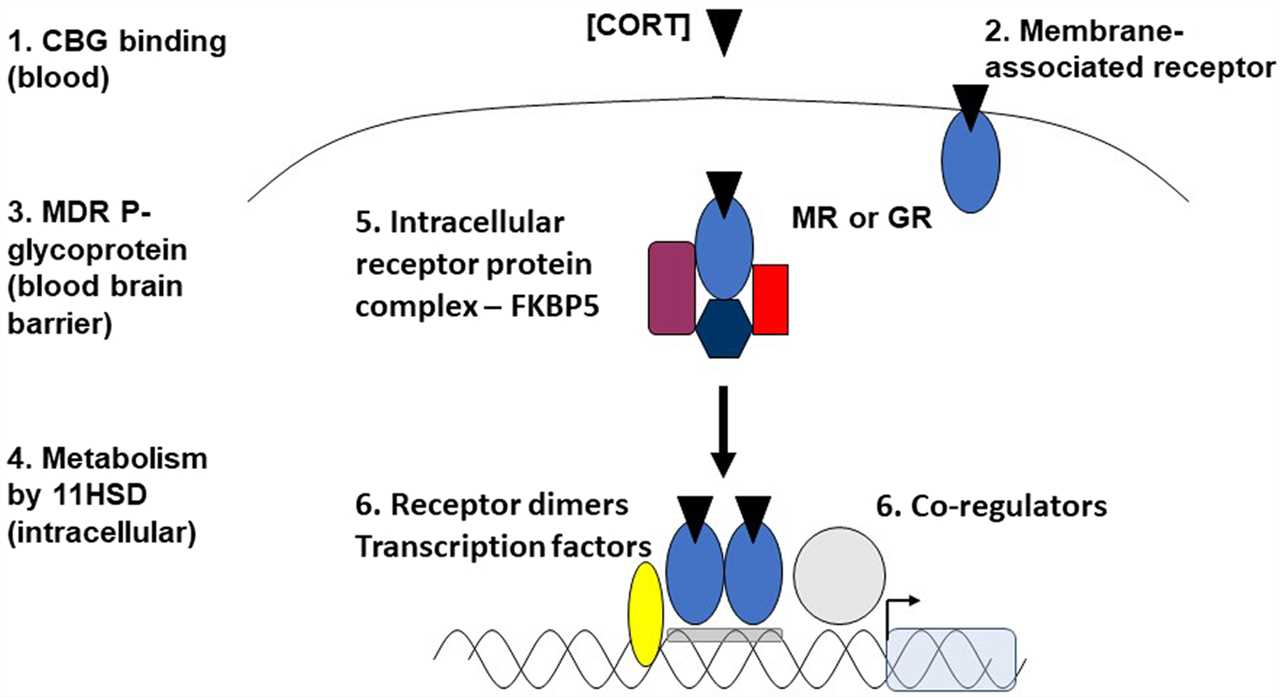
Cortisol is a hormone that plays a crucial role in the stress response and the regulation of various bodily functions. Produced by the adrenal glands, cortisol is released in response to stress, both physical and emotional. It helps the body to mobilize energy and cope with challenging situations.
When faced with stress, cortisol levels rise, promoting the release of glucose into the bloodstream, increasing blood pressure, and suppressing the immune system. These physiological changes are part of the body’s natural stress response and are designed to help us deal with immediate threats.
However, prolonged exposure to high levels of cortisol can have negative effects on mental health. Chronic stress and anxiety can lead to dysregulation of the cortisol response, resulting in an overactive stress response system. This can contribute to the development of mood disorders, such as depression and anxiety disorders, and impair resilience to stress.
On the other hand, individuals with high levels of resilience may have a more balanced cortisol response, allowing them to effectively manage stress and bounce back from adversity. Resilience is the ability to adapt and cope with stress, and it is influenced by various factors, including genetics, early life experiences, and social support.
Understanding the role of cortisol in stress resilience is important for developing interventions and treatments for mental health conditions. By targeting the cortisol response system, researchers and clinicians can potentially help individuals build resilience and improve their ability to cope with stress and adversity.
The Role of Cortisol in the Stress Response
Emotion regulation is a key component of the stress response, and cortisol plays a crucial role in this process. Cortisol, a hormone produced by the adrenal glands, is released in response to stress and helps to regulate the body’s physiological and psychological response to stressors.
When an individual experiences a stressful event, the adrenal glands release cortisol into the bloodstream. This hormone acts on various parts of the body, including the brain, to help regulate the stress response. Cortisol helps to mobilize energy by increasing blood sugar levels and suppressing non-essential functions such as digestion and immune response.
In addition to its physiological effects, cortisol also has an impact on mental health. Chronic stress and elevated cortisol levels have been associated with increased anxiety and mood disorders. Prolonged exposure to cortisol can disrupt the balance of neurotransmitters in the brain, leading to changes in mood, cognition, and behavior.
Furthermore, cortisol plays a role in the regulation of the hypothalamic-pituitary-adrenal (HPA) axis, which is responsible for the body’s response to stress. When the HPA axis is activated, cortisol is released, which in turn suppresses the release of corticotropin-releasing hormone (CRH) and adrenocorticotropic hormone (ACTH). This feedback loop helps to regulate the stress response and prevent excessive cortisol production.
Understanding the role of cortisol in the stress response is crucial for developing effective interventions for stress-related disorders. By targeting cortisol levels and the HPA axis, researchers and clinicians can develop strategies to improve stress resilience and reduce the negative impact of chronic stress on mental health.
The Relationship Between Cortisol and Stress Resilience

Cortisol is a hormone produced by the adrenal glands in response to stress. It plays a crucial role in the body’s stress response and regulation. When a person experiences stress, whether it be physical or psychological, the adrenal glands release cortisol into the bloodstream.
Cortisol is often referred to as the “stress hormone” because it helps the body cope with stressful situations. It increases blood sugar levels, enhances metabolism, and suppresses the immune system temporarily. These physiological responses are designed to provide the body with the necessary energy and resources to deal with the stressor.
However, prolonged exposure to high levels of cortisol can have detrimental effects on mental health. Chronic stress and anxiety can lead to dysregulation of cortisol production, resulting in an imbalance in the body’s stress response system. This dysregulation can contribute to the development of mental health disorders such as depression and anxiety disorders.
On the other hand, individuals with high stress resilience have been found to exhibit better regulation of cortisol levels. They are able to effectively manage and cope with stress, leading to a healthier stress response system. These individuals may have lower baseline cortisol levels and show a quicker return to baseline after a stressful event.
Research has also suggested a bidirectional relationship between cortisol and stress resilience. While cortisol levels can impact stress resilience, stress resilience can also influence cortisol regulation. Factors such as genetics, early life experiences, and coping strategies can influence an individual’s stress resilience and cortisol regulation.
Understanding the relationship between cortisol and stress resilience is crucial for developing interventions and strategies to improve mental health outcomes. By targeting cortisol dysregulation and promoting stress resilience, it may be possible to reduce the risk of mental health disorders and improve overall well-being.
The Impact of Cortisol on Mental Health
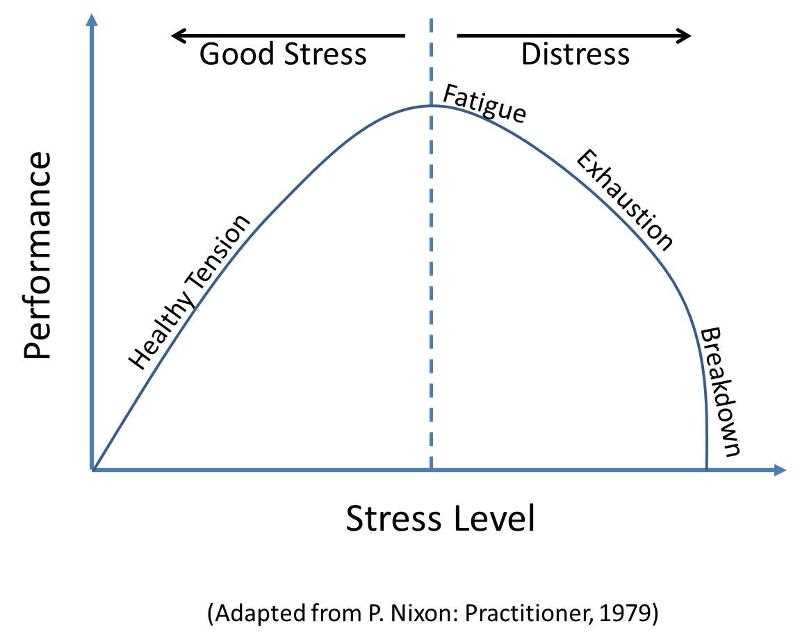
Cortisol, often referred to as the “stress hormone,” plays a crucial role in the body’s response to stress. Produced by the adrenal glands, cortisol helps regulate the body’s stress response and plays a significant role in maintaining emotional and psychological resilience.
During times of stress, cortisol levels rise, preparing the body for a fight-or-flight response. This response is essential for survival in threatening situations, as it increases alertness, boosts energy levels, and enhances the body’s ability to respond to a perceived threat. However, prolonged or chronic stress can lead to consistently elevated cortisol levels, which can have detrimental effects on mental health.
Excessive cortisol levels have been associated with various mental health disorders, including anxiety and depression. High cortisol levels can disrupt the balance of neurotransmitters in the brain, affecting mood regulation and contributing to the development of psychological symptoms. Additionally, chronic stress and elevated cortisol levels can impair cognitive function and memory, further impacting mental well-being.
On the other hand, cortisol also plays a crucial role in resilience to stress. Individuals with higher levels of cortisol have been found to exhibit better stress coping mechanisms and greater emotional resilience. This suggests that cortisol may have a protective effect on mental health, helping individuals better navigate and adapt to challenging situations.
| Potential Effects of Cortisol on Mental Health |
|---|
| Anxiety |
| Depression |
| Impaired cognitive function |
| Memory problems |
| Enhanced stress coping mechanisms |
| Improved emotional resilience |
In conclusion, cortisol plays a complex role in mental health. While elevated cortisol levels can have negative effects on mental well-being, cortisol also contributes to stress resilience and adaptive coping mechanisms. Further research is needed to better understand the precise mechanisms through which cortisol impacts mental health and to develop targeted interventions for individuals experiencing cortisol-related mental health issues.
Cortisol and Anxiety Disorders
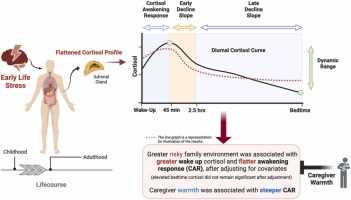
Anxiety disorders are a common mental health condition characterized by excessive and persistent worry, fear, and unease. These disorders can significantly impact a person’s daily life and well-being. Research has shown a strong association between cortisol, a stress hormone, and anxiety disorders.
Cortisol is a hormone produced by the adrenal glands in response to stress. It plays a vital role in the body’s stress response and helps regulate various physiological processes, including metabolism, immune function, and inflammation. However, prolonged or excessive cortisol release can have negative effects on mental health.
In individuals with anxiety disorders, cortisol regulation may be dysregulated, leading to an imbalance in the stress response system. Studies have found that individuals with anxiety disorders often have elevated cortisol levels, even in non-stressful situations. This hyperactivation of the stress response system can contribute to the development and maintenance of anxiety symptoms.
Furthermore, cortisol dysregulation can impact emotional processing and regulation. High cortisol levels have been associated with increased anxiety and heightened emotional reactivity. This can lead to difficulties in managing and coping with stressors, further exacerbating anxiety symptoms.
It is important to note that the relationship between cortisol and anxiety disorders is complex and bidirectional. While elevated cortisol levels may contribute to the development of anxiety disorders, anxiety itself can also lead to dysregulated cortisol levels. Chronic anxiety and stress can disrupt the body’s cortisol rhythm, leading to long-term imbalances.
Understanding the role of cortisol in anxiety disorders is crucial for developing effective treatment strategies. Targeting cortisol regulation and stress response system dysfunctions may help alleviate anxiety symptoms and improve stress resilience. Future research in this area may provide valuable insights into the underlying mechanisms and potential therapeutic interventions.
| Key Points |
|---|
| Anxiety disorders are characterized by excessive worry and fear. |
| Cortisol, a stress hormone, plays a role in anxiety disorders. |
| Cortisol dysregulation can contribute to the development and maintenance of anxiety symptoms. |
| Elevated cortisol levels can impact emotional processing and regulation. |
| Understanding the relationship between cortisol and anxiety disorders is important for treatment. |
Cortisol and Depression
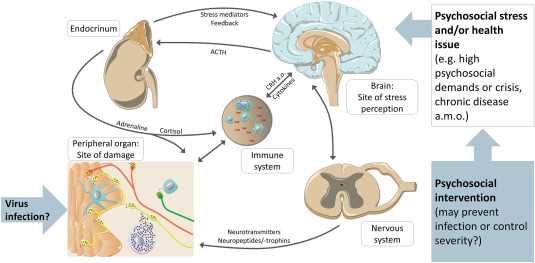
Depression is a complex mental health disorder that affects millions of people worldwide. It is characterized by persistent feelings of sadness, hopelessness, and a lack of interest or pleasure in activities. While the exact causes of depression are not fully understood, research has shown that cortisol, a hormone produced by the adrenal glands, plays a significant role in its development and regulation.
Cortisol is often referred to as the “stress hormone” because it is released in response to stress and helps the body cope with it. In times of acute stress, cortisol levels rise, providing the body with the energy and resources it needs to respond to the threat. However, chronic or prolonged stress can lead to dysregulation of cortisol levels, which can have detrimental effects on mental health.
Studies have found that individuals with depression often have dysregulated cortisol levels, with either elevated or decreased levels compared to those without depression. High cortisol levels have been associated with symptoms of anxiety and agitation, while low cortisol levels have been linked to fatigue, apathy, and a lack of motivation.
The relationship between cortisol and depression is bidirectional, meaning that cortisol dysregulation can both contribute to the development of depression and be a consequence of it. Chronic stress and exposure to traumatic events can lead to dysregulation of the hypothalamic-pituitary-adrenal (HPA) axis, the system responsible for cortisol production and regulation. This dysregulation can then contribute to the development or exacerbation of depressive symptoms.
Furthermore, dysregulation of cortisol can impact the brain regions involved in emotion regulation and stress response, such as the amygdala and prefrontal cortex. These regions play a crucial role in modulating emotional responses and regulating the stress response. When cortisol levels are dysregulated, the functioning of these brain regions can be compromised, leading to difficulties in emotional regulation and an increased vulnerability to stress.
Understanding the role of cortisol in depression is essential for developing effective treatments and interventions for individuals with depression. By targeting cortisol dysregulation, it may be possible to improve resilience to stress and reduce the severity of depressive symptoms. Additionally, interventions that promote healthy coping strategies and stress management techniques may help regulate cortisol levels and enhance mental well-being.

I am Patrina de Silva, a psychologist and mental health blogger in Sri Lanka. After obtaining psychology degrees from the University of Colombo and Monash University, I returned home to work as a counselor while also starting the popular blog “Pressy but Happy” to provide advice on psychological issues. Over the past decade, my empathetic articles have made my blog a leading mental health resource in the country. In addition to writing, I maintain a private therapy practice, frequently volunteer counseling time, and conduct seminars, driven by my passion for destigmatizing mental illness and educating the public on the mind-body connection. I strive to be an influential voice in my field through my compassionate approach.
